Product Detail
Product NameTMEM177 Antibody
Clone No.A6-A11-9
Host SpeciesMouse
ClonalityMonoclonal
PurificationProA affinity purified
ApplicationsWB, ICC, IHC
Species ReactivityHu
Immunogen DescRecombinant protein
ConjugateUnconjugated
Other NamesTM177_HUMAN antibody
Tmem177 antibody
Transmembrane protein 177 antibody
Accession NoSwiss-Prot#:Q53S58
Uniprot
Q53S58
Gene ID
80775;
Calculated MW34 kDa
Formulation1*TBS (pH7.4), 1%BSA, 40%Glycerol. Preservative: 0.05% Sodium Azide.
StorageStore at -20˚C
Application Details
WB: 1:500-1:1000
IHC: 1:50-1:200
ICC: 1:50-1:200
Western blot analysis of TMEM177 on recombinant protein using anti-TMEM177 antibody at 1/1,000 dilution.
ICC staining TMEM177 in Hela cells (red). The nuclear counter stain is DAPI (blue). Cells were fixed in paraformaldehyde, permeabilised with 0.25% Triton X100/PBS.
ICC staining TMEM177 in HepG2 cells (red). The nuclear counter stain is DAPI (blue). Cells were fixed in paraformaldehyde, permeabilised with 0.25% Triton X100/PBS.
ICC staining TMEM177 in MCF-7 cells (red). The nuclear counter stain is DAPI (blue). Cells were fixed in paraformaldehyde, permeabilised with 0.25% Triton X100/PBS.
Immunohistochemical analysis of paraffin-embedded human colon tissue using anti-TMEM177 antibody. Counter stained with hematoxylin.
Immunohistochemical analysis of paraffin-embedded human breast tissue using anti-TMEM177 antibody. Counter stained with hematoxylin.
Immunohistochemical analysis of paraffin-embedded hman stamoch tissue using anti-TMEM177 antibody. Counter stained with hematoxylin.
Immunohistochemical analysis of paraffin-embedded human uterus muscle tissue using anti-TMEM177 antibody. Counter stained with hematoxylin.
A transmembrane protein (TMEM) is a type of integral membrane protein that spans the entirety of the biological membrane to which it is permanently attached. Many transmembrane proteins function as gateways to permit the transport of specific substances across the biological membrane. They frequently undergo significant conformational changes to move a substance through the membrane. Transmembrane proteins are polytopic proteins that aggregate and precipitate in water. They require detergents or nonpolar solvents for extraction, although some of them (beta-barrels) can be also extracted using denaturing agents.
If you have published an article using product 48097, please notify us so that we can cite your literature.



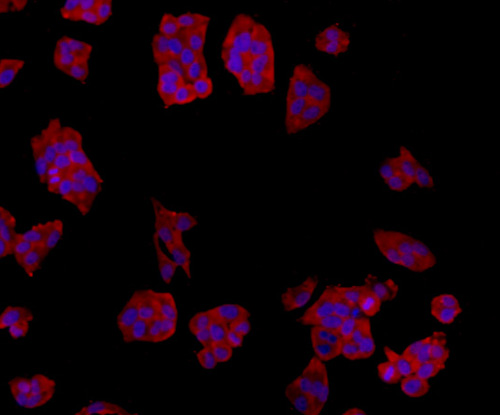
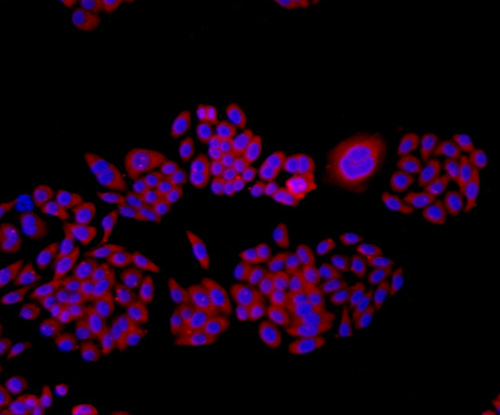
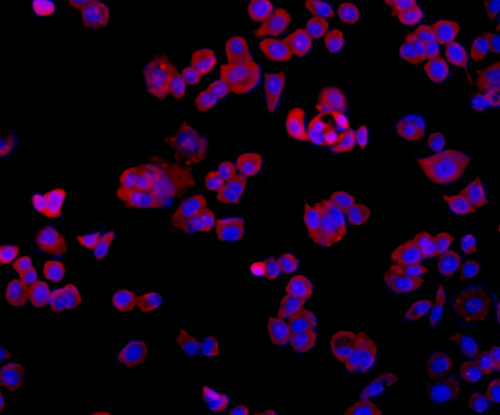
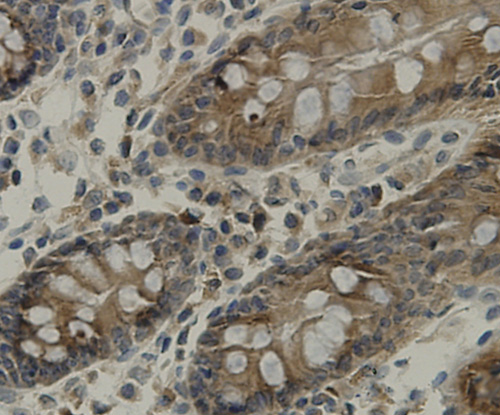
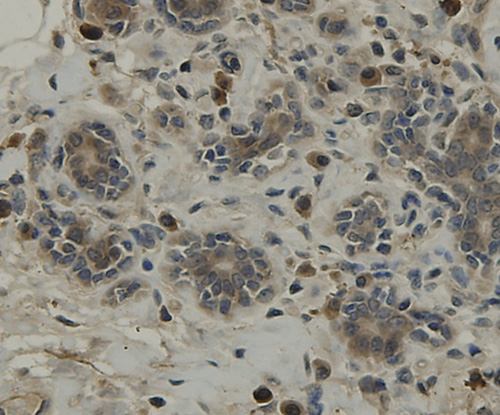
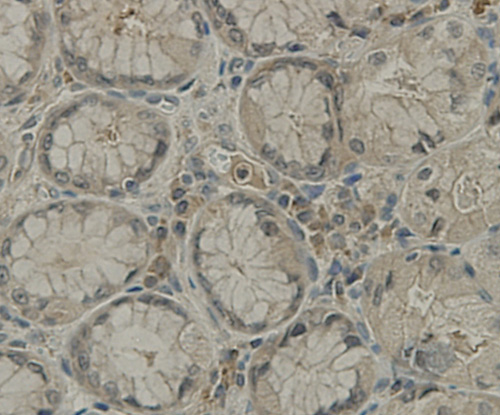

 Yes
Yes



